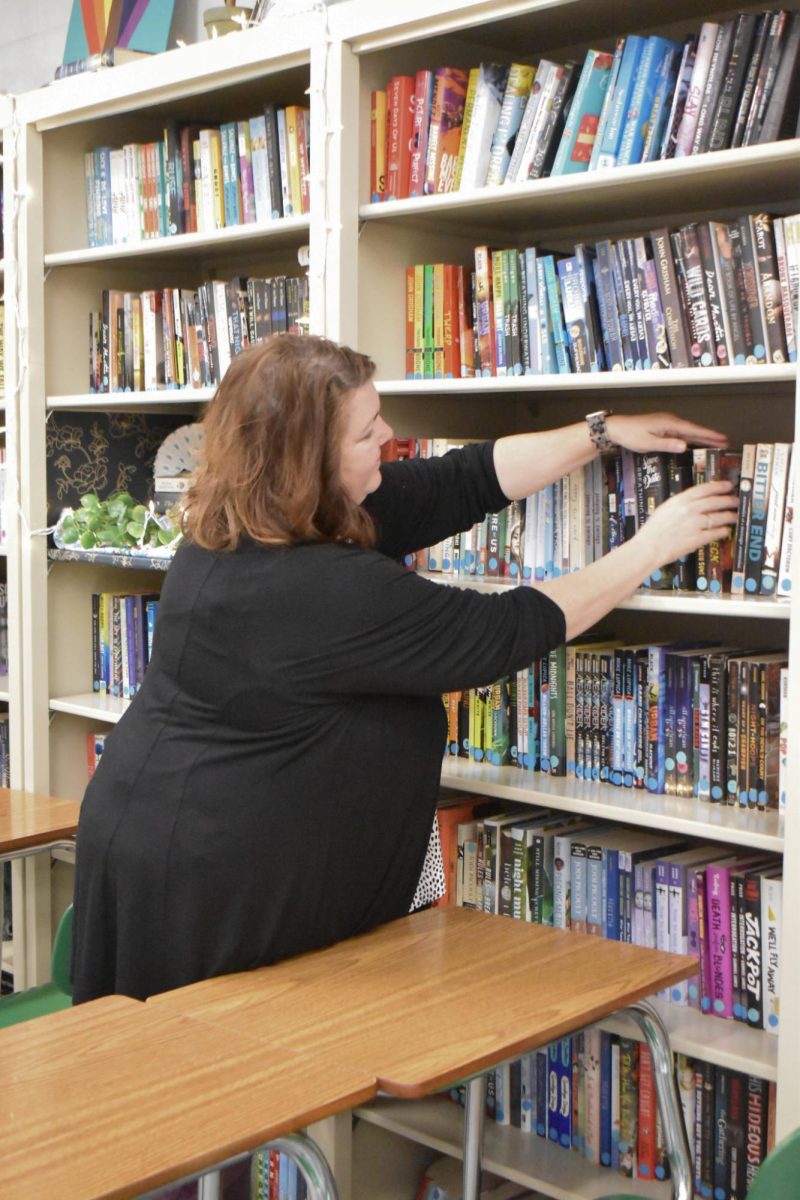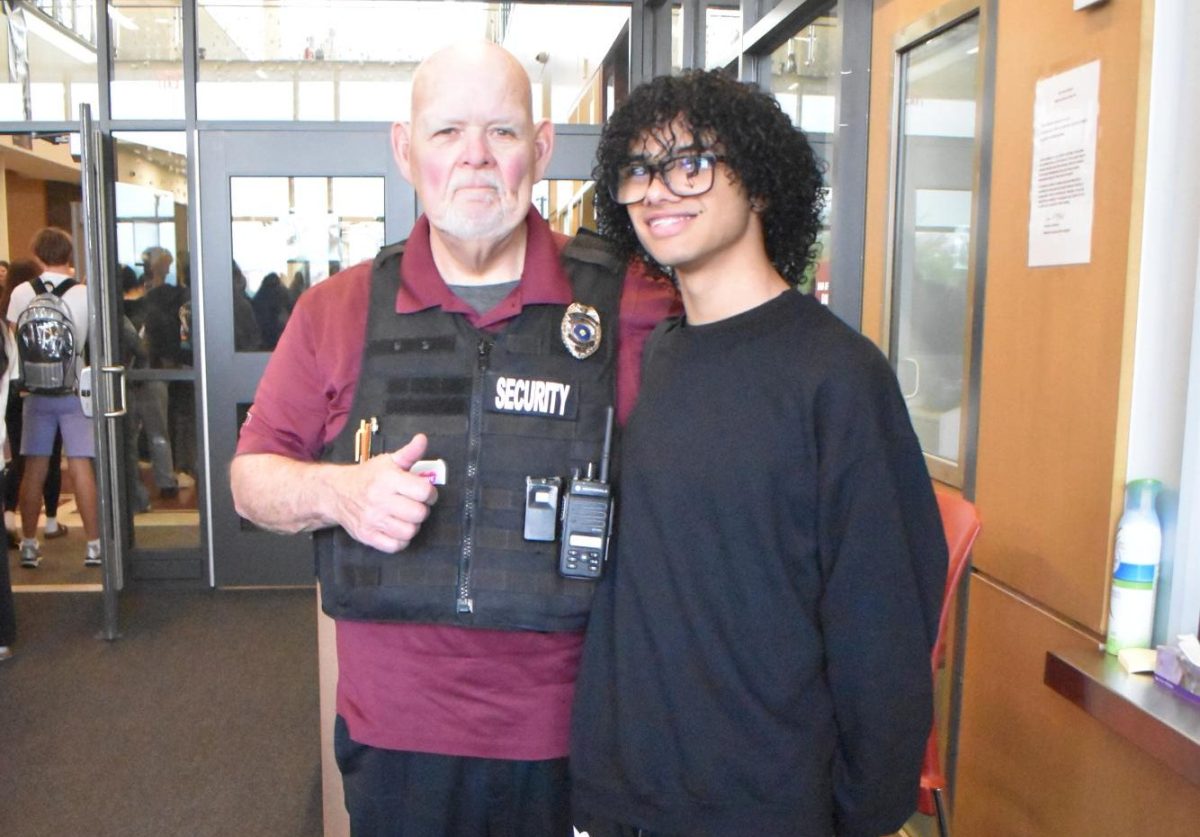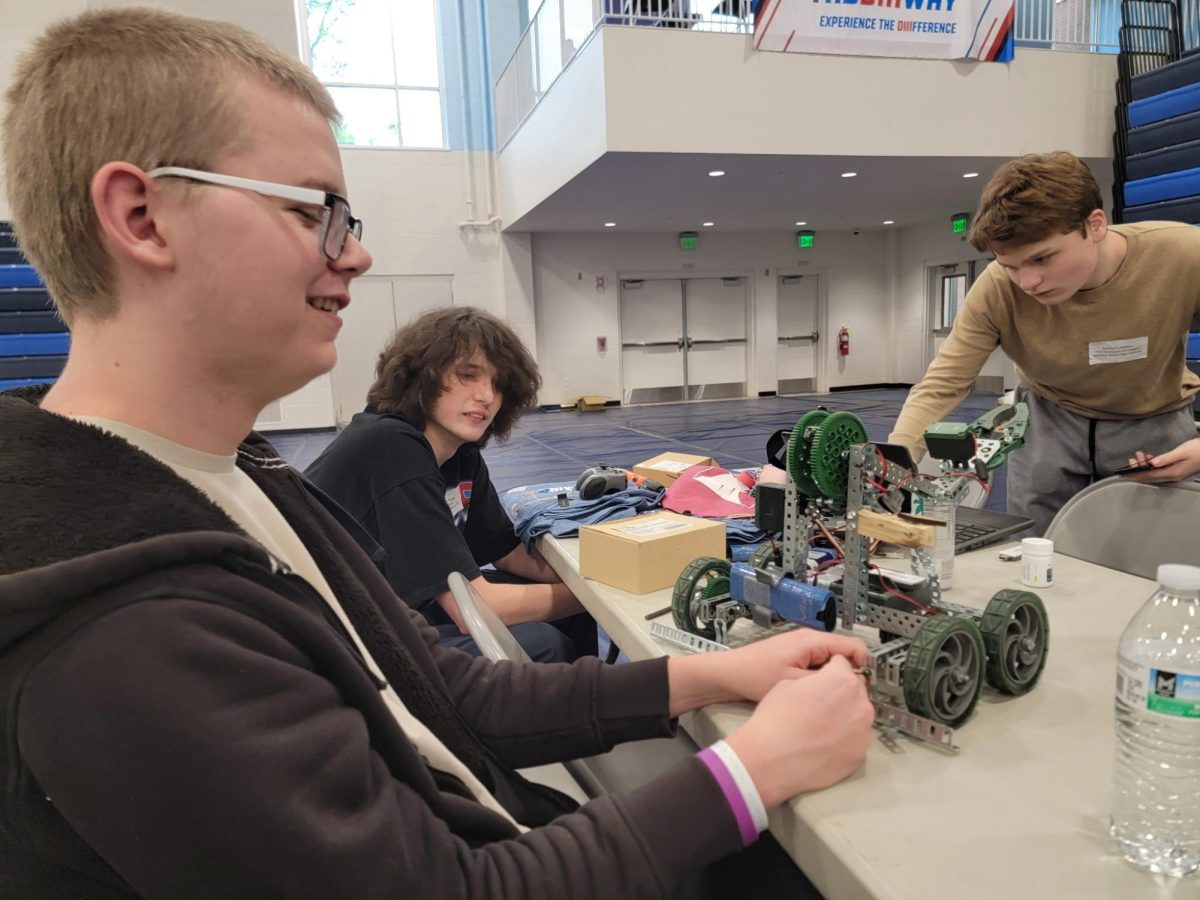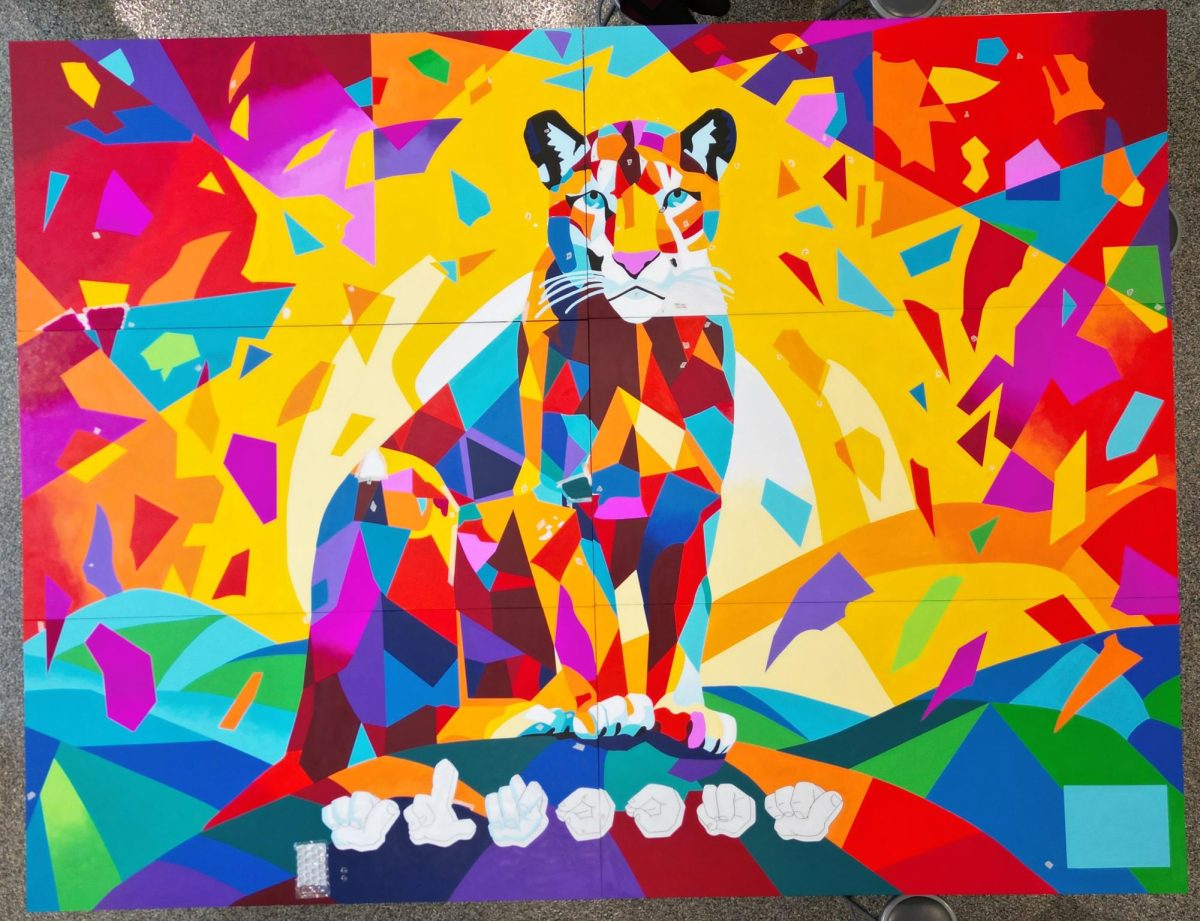“Unless someone like you cares a whole awful lot, nothing is going to get better.”
This line from Dr. Seuss’ 1972 “The Lorax” movie special stuck with science teacher Denise Condo for twenty years after the short’s release. In 1992, she remembered the fuzzy, tangerine-orange forest guardian’s message when she helped organize the Earthkeepers club at AAHS, realizing her goal of learning and appreciating nature: “the miracle of life.”
“The whole idea behind the club is to have people going outside. People don’t interact with nature—it’s all with technology. [The goal is] to get them outside, experiencing nature, interacting with nature and actually hearing what’s going on in their own head, versus worrying about who’s texting you,” Condo said.
The club is entirely student-run. Throughout the school year, Earthkeepers prepare and study for the Pennsylvania Envirothon, a natural resource education program that combines classroom learning and outdoor activities.
“Our mission is to learn about the Earth, first and foremost,” club co-adviser and science teacher Maryssa Brandt said. “We learn about what wildlife we have in Pennsylvania, and then by knowing what wildlife we have in Pennsylvania, we can help preserve it. Our goals are to help preserve and learn about things like acid mine drainage. We also do community service projects like picking up trash to help preserve the Earth.”
On the rainy, cold morning of Thursday, April 10, 10 Earthkeepers club members participated in the Blair County Envirothon, the county-level Envirothon competition that pitted students in Hollidaysburg, Spring Cove, Williamsburg, Bellwood-Antis and other school districts against one another in teams of five at Canoe Creek State Park. The top-ranked team at the county Envirothon moved on to the state-level Pennsylvania Envirothon on May 21 at Windber Recreational Park in Johnstown.
“There was aquatic, forestry, soil, current events [and other stations],” junior Kira Bonanno said. “At each station, we had a certain amount of time. We had a bunch of questions to figure out at the forestry [station]. We had to measure a tree. We had to identify different bushes, different trees and just answer questions about forestry.”
At the Envirothon, students got hands-on field testing experience when they competed in soil and land use, aquatic ecology, wildlife, forestry and environmental issues.
“I’m very proud of [the Altoona teams],” Condo said. “They showed integrity. They did what they knew, and they did a nice job. They really did. It’s very, very tough. What happens is they are given questions. For example, in a fishing game, there’s 30 questions. They’re all open-ended. They’re not multiple choice, and it can be anything from macroinvertebrates, to micro- and macro- vertebrates, to what fish is this, to what are the fishing regulations?”
To prepare for the Envirothon competition, the Earthkeepers club partnered with the Blair County Conservation District. On April 2, 2025, 56 Earthkeepers club members traveled to Leopold Park for the BioBlitz, where students were able to become acquainted with the iNaturalist app and experience a simulated Envirothon setting.
“[The Blair County Conservation District] has an educational coordinator, Lisa Haas, and she organized the BioBlitz for different schools,” Condo said. “Ours was the most challenging, because we didn’t have a [green space], so we had to determine an area to go to. Most schools were going right outside, and we couldn’t do that. Even the parks that were close didn’t have enough natural things around them, so they helped us organize it, and they also sponsored the bus.”
The activities at the BioBlitz helped Condo and Brandt decide which 10 students to take to the Envirothon based on interest and ability. For Bonanno, the BioBlitz allowed her to explore her passion for the outdoors. She hopes the more she learns, the better she’ll be able to take care of the environment.
“One [BioBlitz] station taught us about aquatic animals in the water,” Bonanno said. “Another taught us about insects and the different ways of identifying them, such as their shape and color. One was a food web, which was the best. We all held a picture of an animal or plant, and [an instructor] connected a string. They showed us, if one organism dies off, how the whole food chain is affected. Another one was identifying animal skulls. [An instructor] taught us about organism teeth and how if the teeth are flatter in the back but sharper in the front, they’re omnivores; if the teeth are all sharp, they’re carnivores; and if the teeth are all flat, they’re herbivores. She taught us about the different eye sockets [in prey and predator] too.”
Although the Earthkeepers teams didn’t get to move on to the state level, Brandt is glad students are interested in learning more about Earth and nature and are developing a passion for the environment, just as she did.
“As a science teacher, it’s really important to know what’s around us and help preserve it,” Brandt said. “For example, this morning, as I was doing my morning meditation, I was listening to the birds outside. Just being able to have that and knowing that one day, if we don’t take care of our Earth, that might not be a possibility [is scary]. Caring for what we have and knowing how it affects all of us, from agriculture to animals, is why I do it.”
The environment holds a special place in Condo’s life as well, and she hopes to instill that wonder in students.
“If we don’t keep the environment healthy, we’re not going to be healthy,” Condo said. “You have to appreciate the things around you, the little things around you, in order to truly appreciate the miracle of life.”


!["Speak for the trees, for the trees have no tongues." Following the sentiment expressed in "The Lorax," ten Earthkeepers club members stepped out into the natural world of Canoe Creek State Park on April 10 for the Envirothon competition. "There were people there from the state organizations," Condo said. "You had wardens from the Pennsylvania Game Commission. You had the Pennsylvania Fish and Boat Commission. You had Pennsylvania Association of Conservation Districts [members] focused on soil and, of course, people from the Blair County Conservation District." (Courtesy of Maryssa Brandt)](https://aahsmountainecho.com/wp-content/uploads/2025/04/20250410_1236190.jpg)





